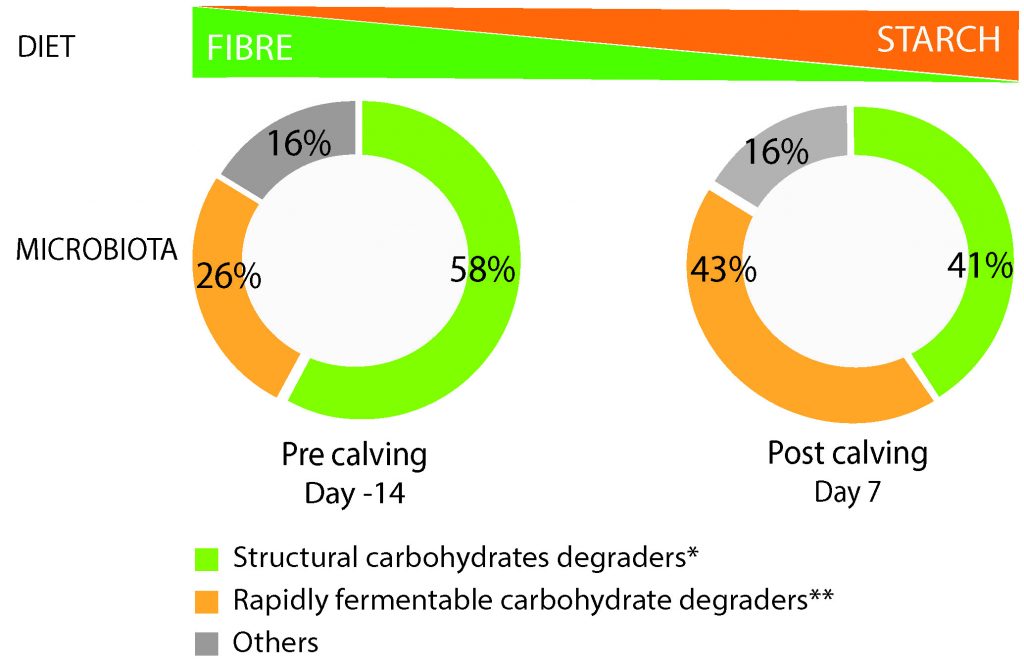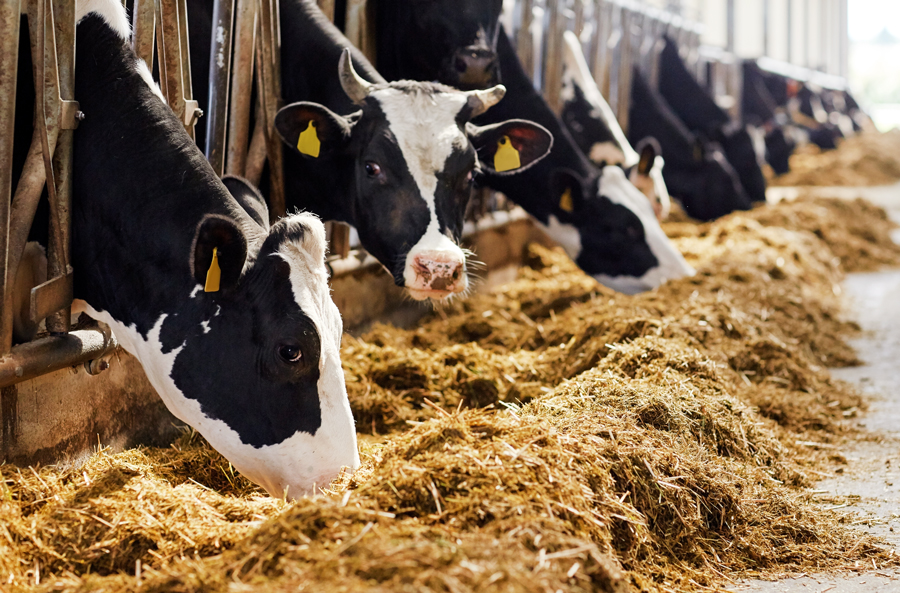Live yeast supplement ‘could help maximise the transition period’
29th October 2020
Dairy farmers are being urged to pay attention to transition diets this autumn by including a live yeast supplement to maximise productivity, achieve calving success and increase the longevity of the cow within the herd.
Dairy farmers are being urged to pay attention to transition diets this autumn by including a live yeast supplement to maximise productivity, achieve calving success and increase the longevity of the cow within the herd.
The transition period is one of the most challenging times that a cow faces, as they deal with tremendous physiological and hormonal changes, says Csaba Adamik of Lallemand Animal Nutrition.
“This coupled with a move from a forage rich to a high concentrate diet can cause negative effects to rumen function,” he says.
“Poor rumen function is one of the biggest concerns in this period because if cows don’t receive the right energy and nutrition, they can have problems with calving and during lactation. This can cause a reduction in productivity, along with cows being more vulnerable to disease, impacting their longevity in the herd.”
Therefore, Csaba explains that research has shown benefits to rumen function when live yeast is included in transition diets.
“When rumen specific live yeast (Saccharomyces cerevisiae CNCM I-1077) is added to transition diets it helps stimulate the growth of beneficial microflora and stabilise rumen pH, which improves fibre digestion and feed utilisation,” says Csaba.
“This can be especially useful when transitioning from a high fibre dry cow diet to a high concentrate early lactation diet as it can help prepare the rumen microbiota for this substantial dietary change,” he notes.
“It has also been found that adding live yeast to the diet can increase average rumen pH by up to 0.5 units, reducing the risk of acidosis.”
Csaba adds that the negative physiological effects on the rumen itself from the transition period can also be mitigated by the inclusion of a specific live yeast.
“A study carried out in 2018 found that when a rumen specific live yeast was fed prior to calving, the rumen wall was better prepared, increasing its integrity and reducing inflammation caused by stress around calving.
“The transition period is highly challenging for the dairy cow, and by paying attention to nutrition, producers will be rewarded with, high yields, reduced risk of metabolic disorders, better fertility and improved longevity of cows within the herd,” concludes Csaba.

Evolution of relative proportions of key functional groups responsible for carbohydrate degradation in the rumen (Bach et al., 2019).

